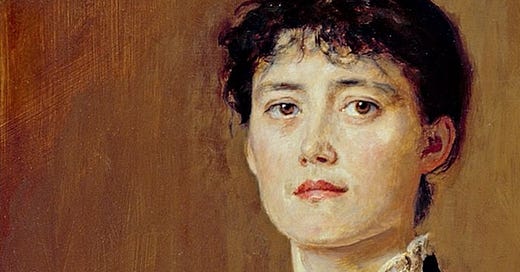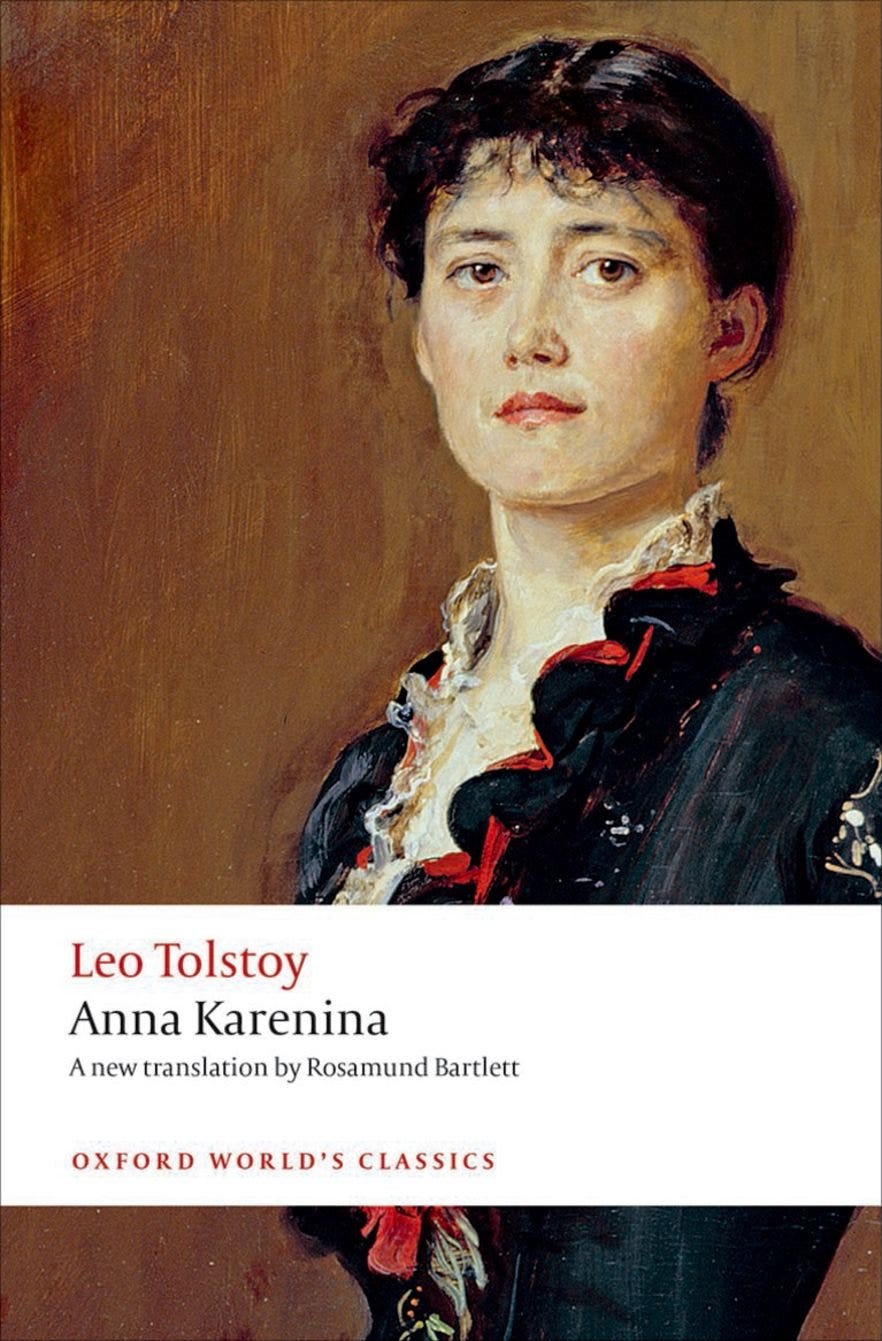I am thrilled to announce our 2025 read-along of Tolstoy’s Anna Karenina. We’ll read it in its original fourteen instalments, starting this January – 150 years since the first instalment first appeared in The Russian Messenger in Moscow.
What is it?
Countess Anna Arkadyevna Karenina is beautiful, wealthy and popular, but she is married to an older government official and feels that her life is empty. Then she meets the fiery young Count Vronsky and embarks on a scandalous and self-destructive love affair which sends shockwaves rippling through Russian high society.
Anna Karenina is one of the very greatest novels ever written. Fyodor Dostoyevsky considered it ‘flawless as a work of art’. ‘We are not to take Anna Karenina as a work of art,’ said the poet and critic Matthew Arnold, ‘we are to take it as a piece of life. A piece of life it is.’
Why are we reading it now?
The first instalment of Anna Karenina was published exactly 150 years ago – in January 1875. Anna Karenina was originally published in fourteen instalments in the monthly periodical The Russian Messenger.
The next three instalments came out in the following three monthly issues, but then came the first of several long gaps and the novel did not appear in full until three years later. The translator Rosamund Bartlett explains the complex situation in her introduction to the Oxford World’s Classics edition:
Parts One and Two and the first twelve chapters of Part Three of Anna Karenina were published in the first four issues of the Russian Messenger in 1875, between January and April. After an eight-month gap, the rest of Part Three was published in the January 1876 issue of the journal, followed by Part Four and the first twenty chapters of Part Five in the February, March, and April issues. Another long hiatus followed. Chapters 20 to 33 of Part Five appeared in December 1876, Part Six was published in the January and February 1877 issues of the journal, and Part Seven appeared in the March and April issues. Katkov refused to print the novel’s eighth and final part for political reasons, and it was eventually published separately by Tolstoy. In early 1878 Anna Karenina was published for the first time as a complete novel.
How will we read it?
Anna Karenina is over 800 pages long. It has 8 parts and 239 chapters. I am suggesting we read it in its original 14 instalments, one each month over the next 14 months:
We’ll start reading on Friday 10 January 2025.
On Friday 31st January we’ll discuss Part One, Chapters 1-23.
On Friday 28th February we’ll discuss Part One, Chapters 24-34 & Part Two, Chapters 1-11.
On Friday 28th March we’ll discuss Part Two, Chapters 12-29.
On Friday 25th April we’ll discuss Part Two, Chapters 30-35 & Part Three, Chapters 1-12.
On Friday 30th May we’ll discuss Part Three, Chapters 13-32.
On Friday 27th June we’ll discuss Part Four, Chapters 1-17.
On Friday 25th July we’ll discuss Part Four, Chapters 18-23 & Part Five, Chapters 1-6.
On Friday 29th August we’ll discuss Part Five, Chapters 7-20.
On Friday 26th September we’ll discuss Part Five, Chapters 21-33.
On Friday 31st October we’ll discuss Part Six, Chapters 1-15.
On Friday 28th November we’ll discuss Part Six, Chapters 16-32.
On Friday 2nd January 2026 we’ll discuss Part Seven, Chapters 1-16.
On Friday 30th January we’ll discuss Part Seven, Chapters 17-31.
On Friday 27th February we’ll discuss Part Eight, Chapters 1-19.
Our posts and conversations will all be collected here.
Which edition should I read?
There are lots of English translations of Anna Karenina available. I will be reading one of the most recent: Rosamund Bartlett’s well-regarded 2014 translation, published in the Oxford World’s Classics series and easily available in both the UK and the USA.
Rosamund Bartlett is a British cultural historian, an expert in Russian literature, music and art. Her own books include Wagner and Russia and Tolstoy: A Russian Life.
If you choose to read a different translation, that’s no problem – and it will be interesting to compare notes – but I would recommend choosing a relatively recent one, perhaps the Richard Pevear and Larissa Volokhonsky (Penguin, 2000), the Kyril Zinovieff and Jenny Hughes (Alma Books, 2008) or the Marian Schwartz (Yale University Press, 2015).
What if I don’t want to read it?
If you don’t want to read Anna Karenina, you can easily opt out of our read-along emails and conversation. Just follow this link to your settings and under Notifications slide the toggle next to ‘Anna Karenina’. A grey toggle means you will not receive emails relating to this title.
If you buy a copy of Anna Karenina through Bookshop.org (UK) or Bookshop.org (US), Read the Classics will earn a commission from your purchase. Thank you in advance for your support!






Cannot wait - just finished up with Simon Haisell's slow read of War & Peace, and am thrilled to delve into a pure novel by the same author.
Another W&P convert of Simon’s seeking more Tolstoy wisdom